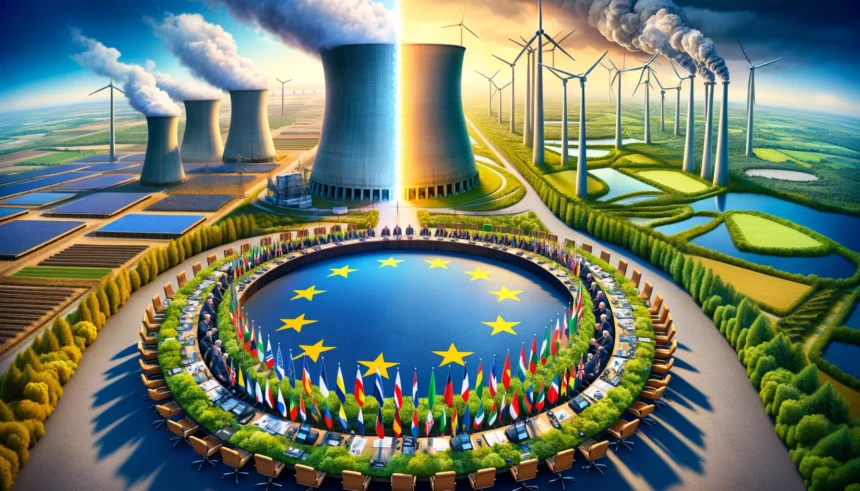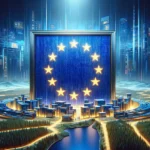In Brussels, on Monday, March 4, the European Union’s internal divide over the future energy policy took center stage, highlighting a significant rift between member states on the role of nuclear energy versus renewable sources. As the EU grapples with strategies to achieve carbon dioxide emissions targets, the discord among its 27 nations has increasingly hampered policymaking efforts, with no consensus on whether to champion atomic power or prioritize renewable energy sources.
In anticipation of the EU energy ministers’ meeting, two distinct groups representing opposing energy visions convened in separate sessions to consolidate their strategies. Spearheaded by France, a coalition of 13 pro-nuclear countries advocated for a robust EU policy on nuclear energy. This faction argues that recent advancements in recognizing nuclear power’s role in the energy mix should now translate into tangible projects and financial support. Their call to action aims to establish a comprehensive European framework for nuclear development, emphasizing the need for policies that facilitate financing and development.
This pro-nuclear statement garnered support from a diverse group of nations, including Bulgaria, Croatia, the Czech Republic, Finland, France, Hungary, the Netherlands, Poland, Romania, Slovakia, Slovenia, and Sweden, with Italy attending the meeting but refraining from signing the statement.
Conversely, Austria and Germany led a 13-country bloc advocating for the EU to shift its focus towards renewable energy, deliberately avoiding direct references to nuclear power. According to EU diplomats, the underlying goal of this faction is to prioritize investments in renewable energy and power grids over nuclear energy, aligning with the EU’s common targets for renewable energy expansion—a stark contrast to the absence of unified goals for nuclear energy.
The renewable energy faction’s stance was echoed in a statement signed by Denmark, Estonia, Greece, Ireland, Italy, Latvia, Luxembourg, Malta, the Netherlands, Portugal, and Spain, highlighting the emphasis on cost-efficient technologies that align with shared objectives.
Notably, Cyprus, Lithuania, and Belgium (currently holding the EU’s rotating presidency and traditionally neutral in such debates) abstained from siding with either statement, underscoring the complexity and diversity of opinions within the EU. The Netherlands emerged as the sole member state to sign both statements, reflecting the nuanced positions nations are navigating in the face of these energy debates.
This division underscores broader disagreements within the EU over energy policy. France, deriving approximately 70% of its electricity from nuclear power, leads the charge for nuclear energy in Europe. It finds allies in several eastern European countries that view nuclear power to transition away from coal-dependent economies without increasing carbon emissions. However, the split remains a significant obstacle to unifying EU policymaking in energy, demonstrating the challenges of balancing environmental goals with diverse national interests and energy strategies.
















